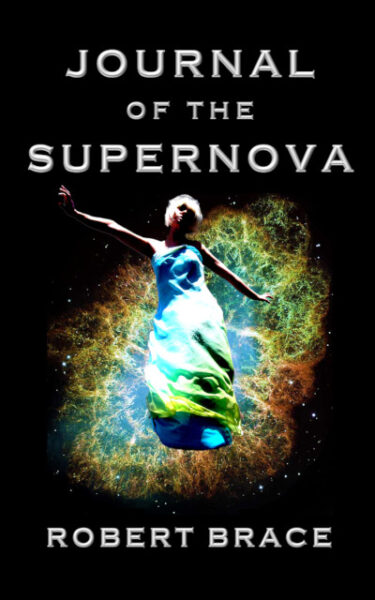An engrossing story that lingers long after the final page.
Journal of the Supernova by Robert Brace is a beautifully restrained and cerebral mystery set against the looming backdrop of cosmic catastrophe. As the red supergiant Betelgeuse edges toward a possible supernova, art historian Hugo Evans finds himself invited aboard a vintage yacht by the enigmatic artist Rothesay Ambrose Urquhart. The Mulvane sails the Mediterranean with twelve guests, none of whom know each other, or their mysterious host. As tensions simmer beneath the surface, the existential pressure of impending astronomical disaster grows. When a guest vanishes overboard early in the voyage, it sparks suspicion. Was it suicide, murder, or an accident? Hugo and fellow guest Oriana Welles, a razor-sharp lawyer with a nose for deception, begin to probe the incident, only to uncover subtle clues and emotional undercurrents swirling through the gathering. Brace weaves a haunting narrative where the threat of extinction brings hidden motives, private obsessions, and fragile human connections to light.
Robert Brace has a controlled and confident way of writing that ensures every moment is elegant, restrained, and perfectly suited to the reflective tone of the narrative. It’s a conceptually brilliant novel from the start, with a juxtaposition of personal mystery with cosmic-scale threat that offers unusual connections and inventive cross-genre theming filled with surprises. His character work is also beautifully subtle and psychologically rich, avoiding caricature throughout and offering delightfully well-rounded, thoughtful, deep portrayals of genuine people that you can fall in love with. There’s a wonderfully close and claustrophobic feel to the confined setting on the yacht, with vivid description and atmospheric connotations that heighten the tension and intimacy at every turn. The setting has points when it is almost sensually described, evoking both beauty and isolation, but also the private moments of characters at their most vulnerable. Brace also explores philosophical questions of mortality and legacy, and these are handled with grace and never doled out for shock value. The narrative pacing is riveting, building suspense through implication rather than obvious cliffhangers, allowing readers an opportunity to figure things out for themselves. The author invites the reader to contemplate meaning in the face of inevitable loss, with themes that fit the characters’ journeys and draw audiences even closer to them. Dialogue interchanges sparkle with intelligence and wit, and are layered with subtext as they move the plot along naturally. With unsettling, beautiful, and quietly profound moments from start to finish, Journal of the Supernova is an engrossing story that lingers long after the final page.







